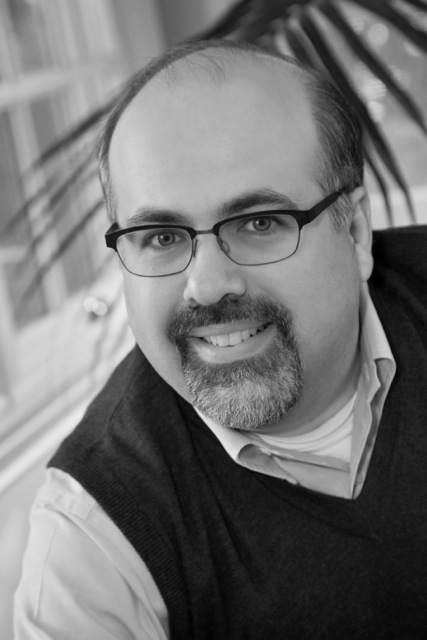 Rafael Campo teaches and practices internal medicine at Harvard Medical School and Beth Israel Deaconess Medical Center in Boston. His new book of poetry, Alternative Medicine, is available from Duke University Press. He is the recipient of a Guggenheim fellowship, a National Poetry Series award and a Lambda Literary Award; his third book, Diva, was a finalist for the National Book Critics Circle Award. His previous collection The Enemy (Duke, 2007), won the Sheila Motton Award from the New England Poetry Club, one of the nation's oldest poetry organizations. His poem "Morbidity and Mortality Rounds" recently won the Hippocrates Open International Prize, for a poem on a medical theme.
Rafael Campo teaches and practices internal medicine at Harvard Medical School and Beth Israel Deaconess Medical Center in Boston. His new book of poetry, Alternative Medicine, is available from Duke University Press. He is the recipient of a Guggenheim fellowship, a National Poetry Series award and a Lambda Literary Award; his third book, Diva, was a finalist for the National Book Critics Circle Award. His previous collection The Enemy (Duke, 2007), won the Sheila Motton Award from the New England Poetry Club, one of the nation's oldest poetry organizations. His poem "Morbidity and Mortality Rounds" recently won the Hippocrates Open International Prize, for a poem on a medical theme.
On your nightstand now:
I'm re-reading the poet Amy Clampitt's letters (Love, Amy), edited by Willard Spiegelman--I studied and wrote poetry with her when I was an undergrad double-majoring in English and neuroscience at Amherst College. Also U.K. physician-poet Jo Shapcott's most recent collection, Of Mutability, Sharon Olds's Stag's Leap, Stephen Burt's Belmont and David Biespiel's Charming Gardeners.
Favorite book when you were a child:
The Giving Tree by Shel Silverstein.
Your top five authors:
Now: Marilyn Hacker, Derek Walcott, Thom Gunn, Eve Kosofsky Sedgwick, Pablo Neruda.
Then: Shakespeare, Dickinson, Chekhov, Whitman, Lorca.
Book you've faked reading:
As I Lay Dying by William Faulkner (give me a break, that was in high school!).
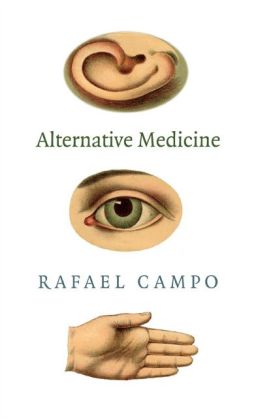 Book you're an evangelist for:
Book you're an evangelist for:
Margaret Edson's extraordinary play Wit.
Book you've bought for the cover:
Martin Espada's The Trouble Ball (the poems inside are stunning, too!).
Book that changed your life:
Atlantis by Mark Doty and Illness as Metaphor and AIDS and Its Metaphors by Susan Sontag. I read these two books side by side, and the dialogue they create addresses one of the central themes in my life's work: Can creative self-expression heal? Are all humane attempts to make sense of suffering and to heal ultimately insufficient, as compared to the strictly scientific or medical approach to curing disease?
Favorite line from a book:
"English, which can express the thoughts of Hamlet and the tragedy of Lear, has no words for the shiver and the headache. It has all grown one way. The merest schoolgirl, when she falls in love, has Shakespeare or Keats to speak her mind for her; but let a sufferer try to describe a pain in his head to a doctor and language at once runs dry. There is nothing ready made for him. He is forced to coin words himself, and, taking his pain in one hand, and a lump of pure sound in the other (as perhaps the people of Babel did in the beginning), so to crush them together that a brand new word in the end drops out. Probably it will be something laughable." --From Virginia Woolf's On Being Ill.
Book you most want to read again for the first time:
Mary B. Campbell's The World, the Flesh and Angels--I would give anything to feel such a sense of discovery and newness in the world, as I did at that time in my life, so early in my struggle to balance my twin vocations of poetry and medicine, when I read these indelible, incandescent poems. Though not specifically addressed to the experience of illness, Campbell's poems are full of wonder at our own humanity, our fragility and perseverance in a deeply troubled but spectacularly beautiful world.
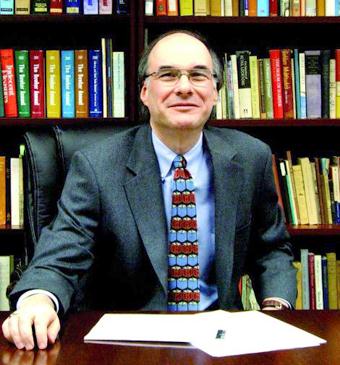 "Nationally, the network of independent bookstores has seen and is continuing to see real, sustained growth. This vitality is the result of your hard work, innovation, and a commitment to selecting and showcasing titles that we passionately believe in and that we know will find readers in our communities.... Believe me, I know you can't pay your bills with press clips and that there will be many, many hectic hours before you make that last sale on December 24, but I hope that you can take a moment to appreciate that the public narrative about our industry has changed in a very critical way, as more consumers recognize the importance, vitality, and health of indie bookstores.... All best wishes to you for a busy and profitable holiday season from all of us at ABA. Thanks for all you've done--and are doing--to keep indie bookselling strong."
"Nationally, the network of independent bookstores has seen and is continuing to see real, sustained growth. This vitality is the result of your hard work, innovation, and a commitment to selecting and showcasing titles that we passionately believe in and that we know will find readers in our communities.... Believe me, I know you can't pay your bills with press clips and that there will be many, many hectic hours before you make that last sale on December 24, but I hope that you can take a moment to appreciate that the public narrative about our industry has changed in a very critical way, as more consumers recognize the importance, vitality, and health of indie bookstores.... All best wishes to you for a busy and profitable holiday season from all of us at ABA. Thanks for all you've done--and are doing--to keep indie bookselling strong." 







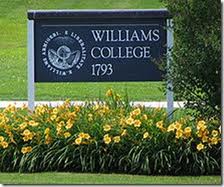 Williams College, which is assessing its bookstore operation and envisioning changes to its structure, operation and location, has "begun distributing a Request for Information (RFI) to members of the surrounding community as well as the
Williams College, which is assessing its bookstore operation and envisioning changes to its structure, operation and location, has "begun distributing a Request for Information (RFI) to members of the surrounding community as well as the 
 The
The  Sales have risen compared to this time last year, which Staubach attributes to being in the heart of Storrs's downtown and the extra room that the new space provides. Thanks to the available floor space, she's nearly tripled the size of the kids' section, and sales of children's books have increased accordingly. She added: "A lot of it, honestly, is just that the space feels so good. And people can actually see the books. It was so crammed before."
Sales have risen compared to this time last year, which Staubach attributes to being in the heart of Storrs's downtown and the extra room that the new space provides. Thanks to the available floor space, she's nearly tripled the size of the kids' section, and sales of children's books have increased accordingly. She added: "A lot of it, honestly, is just that the space feels so good. And people can actually see the books. It was so crammed before." In late January, once the cafe and Puppetry Museum are both fully up and running, the Co-op will host its grand opening celebration. There will be authors, puppetry exhibitions, readings and, of course, generous amounts of food and drink.
In late January, once the cafe and Puppetry Museum are both fully up and running, the Co-op will host its grand opening celebration. There will be authors, puppetry exhibitions, readings and, of course, generous amounts of food and drink.
 On Wednesday, the
On Wednesday, the 
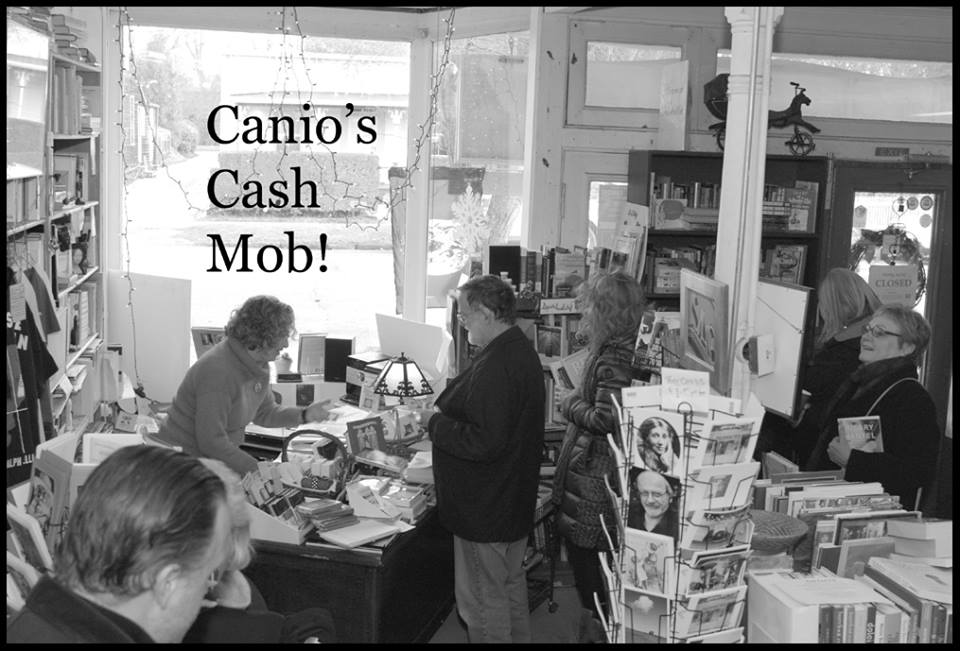 Last Saturday, a cash mob hit
Last Saturday, a cash mob hit 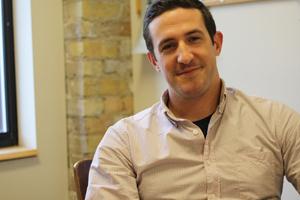 Patrick Thomas has been named managing director at
Patrick Thomas has been named managing director at 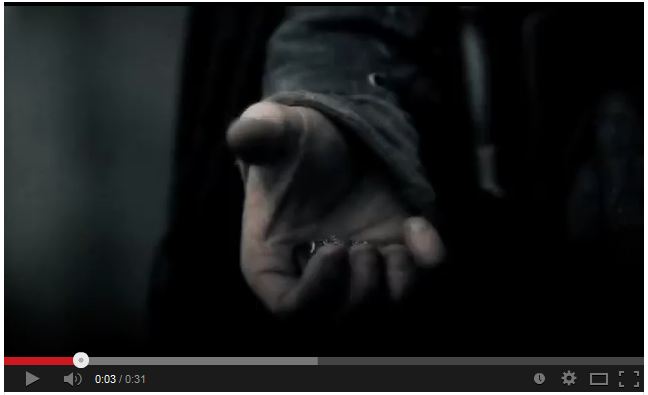 The Pagan Lord
The Pagan Lord

 Rafael Campo
Rafael Campo Book you're an evangelist for:
Book you're an evangelist for: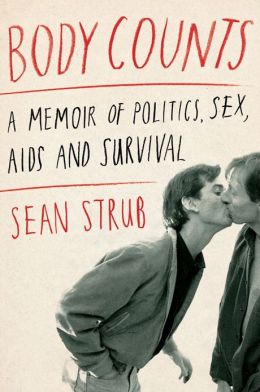 Seventeen-year-old Sean Strub left Iowa City in 1976 to attend Georgetown University and--more importantly for his future--to become an elevator operator at the Capitol Building. He worked to meet as many powerful figures as possible, with his own political career in mind, yet he was haunted by a secret he feared would make him unelectable: he was attracted to men.
Seventeen-year-old Sean Strub left Iowa City in 1976 to attend Georgetown University and--more importantly for his future--to become an elevator operator at the Capitol Building. He worked to meet as many powerful figures as possible, with his own political career in mind, yet he was haunted by a secret he feared would make him unelectable: he was attracted to men.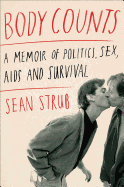
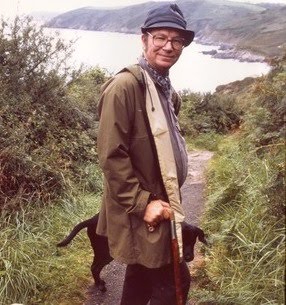 Colin Wilson, who died December 5 at the age of 82, wrote these words in his novel The Philosopher's Stone, first published in 1969 and a book I never considered handselling when I was a bookseller, even though I first read it nearly 40 years ago and have had a copy somewhere on my shelves ever since. Curious.
Colin Wilson, who died December 5 at the age of 82, wrote these words in his novel The Philosopher's Stone, first published in 1969 and a book I never considered handselling when I was a bookseller, even though I first read it nearly 40 years ago and have had a copy somewhere on my shelves ever since. Curious.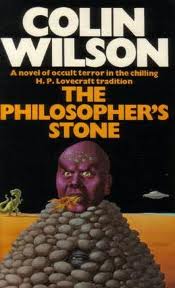 So the Philosopher's Stone has stayed with me, weaving that spell certain books cast, as most readers will understand. "Through books, man has conquered time," Wilson wrote. "The insights of poets and saints are still alive. For two million years, man ascended the evolutionary ladder slowly and painfully, changing hardly more than an ape of the horse. With the invention of books, he took a giant step into the realm of the gods."
So the Philosopher's Stone has stayed with me, weaving that spell certain books cast, as most readers will understand. "Through books, man has conquered time," Wilson wrote. "The insights of poets and saints are still alive. For two million years, man ascended the evolutionary ladder slowly and painfully, changing hardly more than an ape of the horse. With the invention of books, he took a giant step into the realm of the gods."